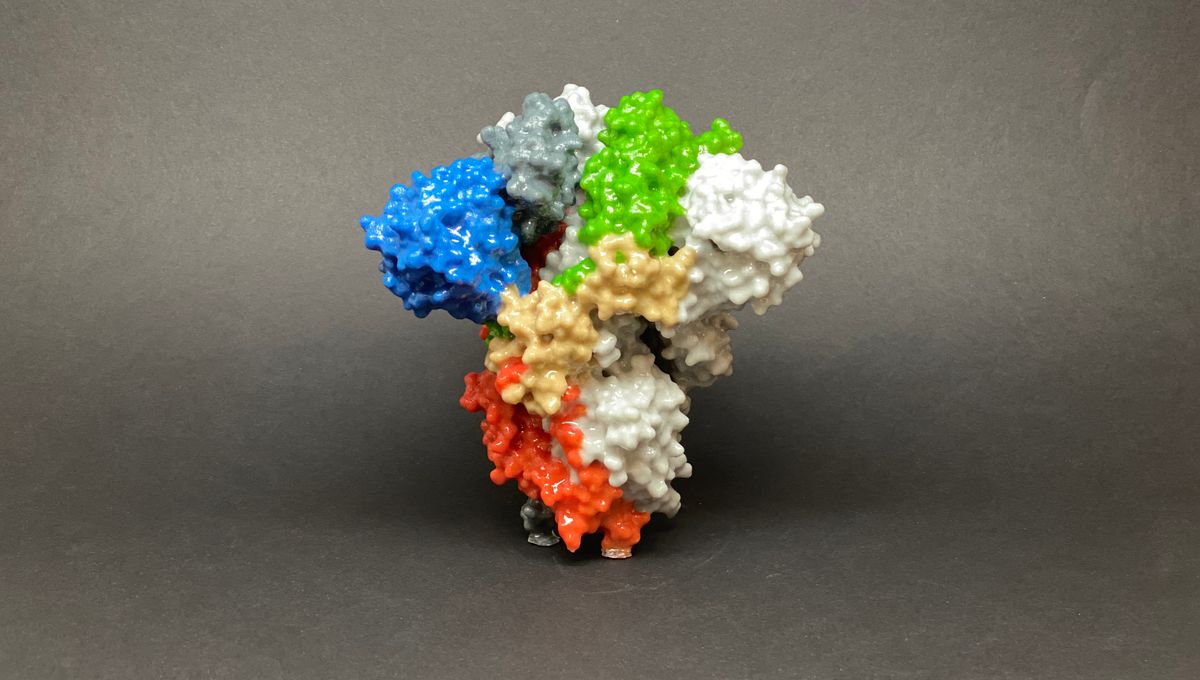
The unfortunate case of a man in The Netherlands who was infected with COVID-19 for more than a year and half is documented in a new report. At 613 days, it’s the longest COVID infection we know about so far. So long, in fact, that the virus had time to evolve into a new variant inside the man’s body.
The 72-year-old man had a complex health history. He’d previously received a stem cell transplant to treat a form of blood cancer, but had later been diagnosed with another cancer, diffuse large B cell lymphoma. As a result of the medication he was taking for that, he was severely immunocompromised, meaning a serious case of COVID-19 would always have been a risk for him.
He caught COVID in February 2022, and was treated with a combination of monoclonal antibodies and steroids. Unfortunately, the medicines didn’t work, and the infection became persistent. Although he had received several COVID vaccines prior to his infection, he showed no evidence of an antibody response.
For over 600 days, the patient remained infected with the virus, and had to be hospitalized several times. But it was very early on, just 21 days after his first treatment, that the signs of the virus mutating began to be seen.
First, sequencing showed the virus had acquired a mutation known to be associated with resistance to sotrovimab, one of the drugs the man was treated with. Further analysis of 27 nasal swabs collected between February 2022 and September 2023 have now revealed over 50 different mutations, including some in the spike protein that suggest the virus was adapting to evade the human immune system.
In this man’s case, his underlying health issues meant his immune system never really stood a chance at clearing the virus. Long stays in hospital, coupled with the need to take extra precautions to avoid infecting others, took a toll on the man’s quality of life, but the medical team say there’s no evidence the highly mutated strain infected anyone else in the community.
In October 2023, the patient passed away as a result of a relapse of his underlying illness.
Although we’ve never seen one that has lasted quite this long, persistent infections are a recognized phenomenon with SARS-CoV-2. Some recent research suggested up to three in 100 infections might hang around for more than a month.
The problem is, the longer a virus is replicating and evolving in the body, the more chance it has of picking up immune-escape mutations. That’s one theory for how the Omicron variant originally came about. Not every mutant strain will become a variant of concern, but it’s still important to keep an eye on these persistent infections, along with offering the best care possible to patients who are likely already dealing with other medical issues.
“The duration of SARS-CoV-2 infection in this described case is extreme, but prolonged infections in immunocompromised patients are much more common compared to the general community,” the authors wrote in a statement.
“Further work by our team includes describing a cohort of prolonged infections in immunocompromised patients from our hospital with infection durations varying between one month and two years. However, from the viewpoint of the general public, prolonged infections remain rare as the immunocompromised population is only a very small percentage of the total population.”
The case will be presented at the upcoming ESCMID Global conference 2024.
Source Link: Man’s COVID Infection Lasted Nearly 2 Years, Long Enough To Evolve A New Variant